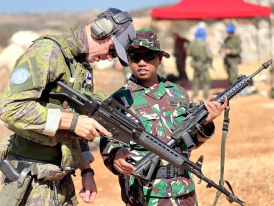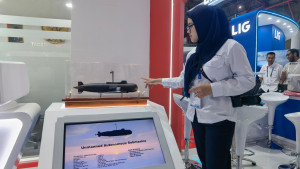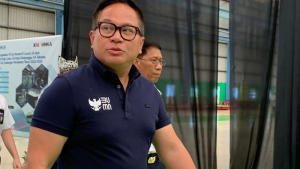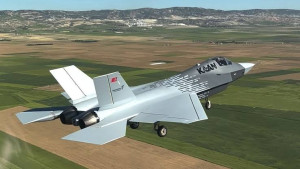Indonesia’s defense industry and the significance of Indo Defense 2025
Indonesia’s defense industry is poised for significant growth, particularly with the highly anticipated Indo Defense Expo & Forum 2025 in June. The event − scheduled for June 11-14, 2025 − is set to serve as a pivotal platform for advancing the nation’s defense capabilities, fostering international cooperation, and enhancing the competitiveness of the domestic defense sector.

By: Beni Sukadis
The Indo Defense Expo 2025 is expected to attract a diverse array of high-level international delegations. According to the latest information, the event will be attended by 13 defense ministers, five deputy defense ministers, 10 military commanders, eight chiefs of staff, and representatives from 40 countries. Such broad participation underscores the Expo's stature as a global forum for defense dialogue, strategic partnerships, and technological exchange.
For Indonesia, this expo presents strategic opportunities to accelerate the development of its main weapon systems (alutsista) through mechanisms such as technology transfer, co-production, and joint development. These strategies are critical for modernizing the national defense posture and reducing long-term reliance on foreign suppliers.
An essential dimension of this modernization effort is the collaboration between private domestic defense companies and state-owned enterprises under the umbrella of DEFEND ID. This synergy strengthens Indonesia’s industrial base by combining innovation, production capacity, and strategic direction.
DEFEND ID plays a central role in coordinating and scaling national defense manufacturing, while private sector involvement injects agility, specialized expertise, and competitive innovation. Together, these actors can enhance Indonesia’s capability to develop and produce advanced defense technologies tailored to its strategic needs.
This momentum also aligns with the recent completion of the Minimum Essential Force (MEF) roadmap in 2024 − a long-term defense posture strategy that has guided military modernization since 2010. The conclusion of MEF provides a critical opportunity to evaluate Indonesia’s current defense readiness, identify remaining capability gaps, and shape a new strategic blueprint for the future. This assessment will inform upcoming procurement priorities and drive efforts to meet the evolving security landscape, both regionally and globally.
In today’s defense environment, successful modernization hinges increasingly on collaboration. By pursuing procurement strategies that emphasize local industry involvement and technology acquisition, Indonesia can build more sustainable and self-reliant defense capabilities. Such approaches not only strengthen domestic technical know-how and industrial capacity but also enable greater independence in system upgrades and maintenance in the future.
Moreover, empowering local defense industries through these partnerships unlocks potential export opportunities. As Indonesia develops more advanced and competitive defense products, it can begin to position itself in the global arms market − driving economic growth, creating skilled jobs, and establishing itself as a credible player in international defense manufacturing.
A key example of this kind of collaboration is the Indonesia–South Korea joint fighter jet development program (KF-21 Boramae) or known as Indonesia’s IFX jet fighter. This initiative demonstrates how joint ventures and co-production efforts can help elevate Indonesia’s technological base and support the long-term goal of defense self-sufficiency.
Additionally, the contract for 42 Rafale fighter jets from France presents another major opportunity − not only in terms of strengthening Indonesia’s air combat capabilities, but also through the potential for technology transfer, training, and maintenance cooperation with Dassault Aviation. If properly leveraged, this deal could stimulate the growth of local aerospace industries, involve Indonesian companies in supply chain activities, and enhance workforce skills in high-tech defense manufacturing, contributing to broader industrial advancement.
Looking ahead, Indo Defense 2025 is likely to yield substantial benefits for Indonesia. The increased international participation offers pathways for innovative defense solutions tailored to national needs. The focus on technology transfer and local production during the expo will help fast-track the development of indigenous platforms, reduce procurement costs, and enhance the Indonesian Armed Forces’ operational readiness.
The upcoming Indo Defense Expo 2025 represents a strategic opportunity for Indonesia to strengthen its defense industry. By leveraging international partnerships, advancing technology transfer, and boosting local industrial capacity − particularly through public-private collaboration and the leadership of DEFEND ID − Indonesia can build a more resilient, autonomous, and competitive defense sector.
Combined with the lessons from the Minimum Essential Force (MEF) evaluation, this approach will shape the next phase of military modernization. Ultimately, this will not only enhance national security but also generate long-term economic and strategic advantages, positioning Indonesia as an emerging force in the global defense landscape.
The writer is senior consultant at Marapi Consulting & Advisory, Jakarta.
Already have an account? Sign In
-
Start reading
Freemium
-
Monthly Subscription
20% OFF$29.75
$37.19/MonthCancel anytime
This offer is open to all new subscribers!
Subscribe now -
Yearly Subscription
33% OFF$228.13
$340.5/YearCancel anytime
This offer is open to all new subscribers!
Subscribe now







